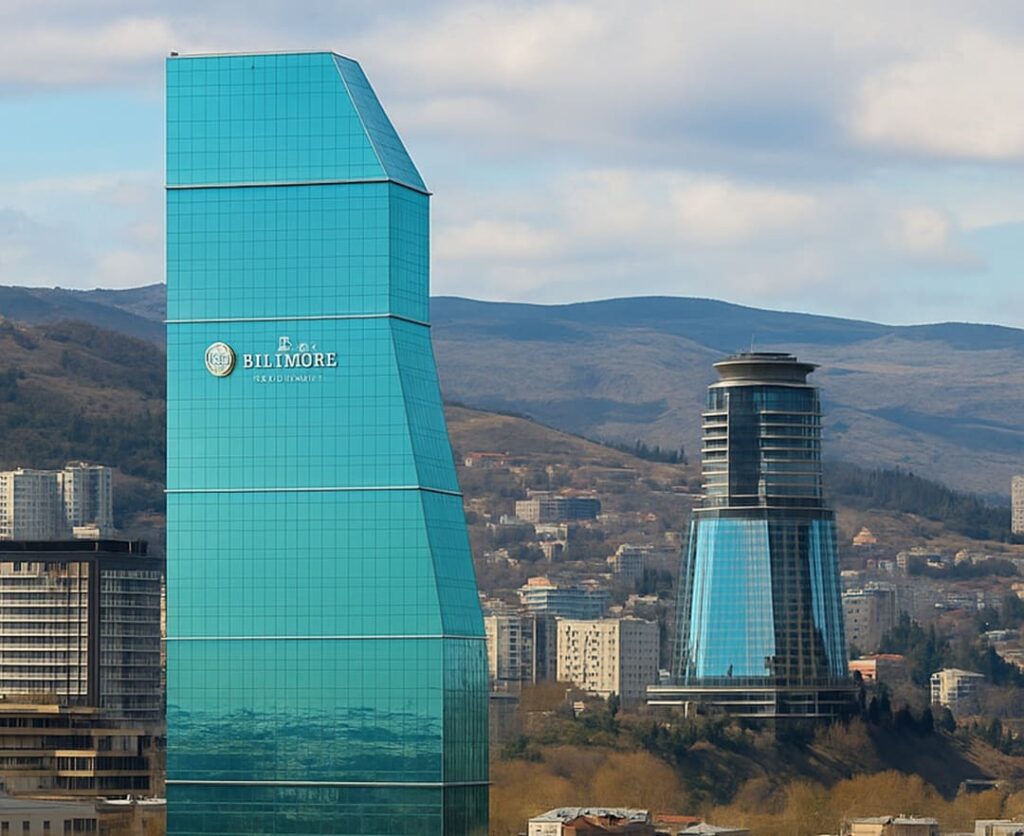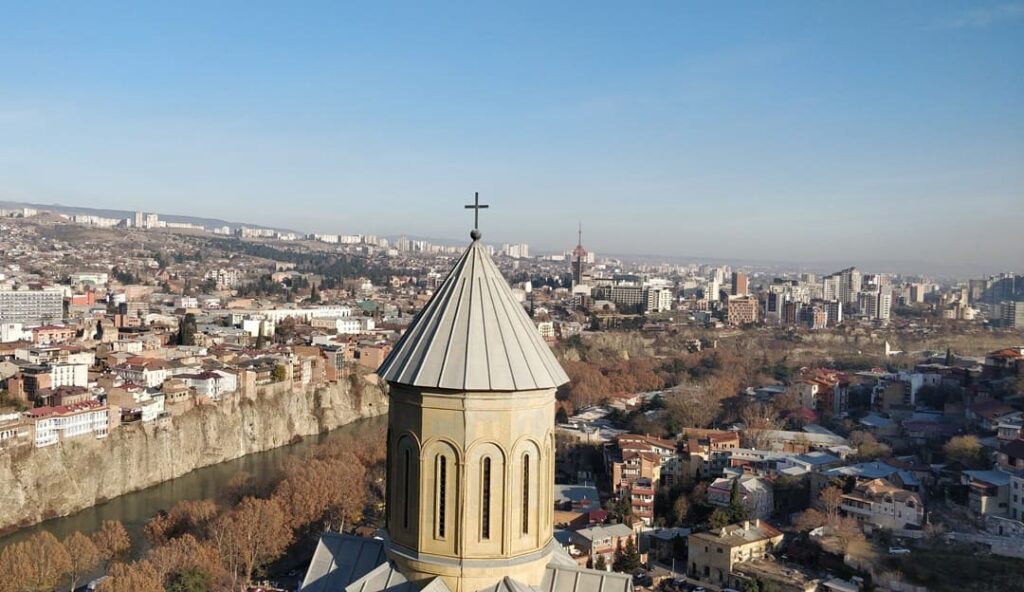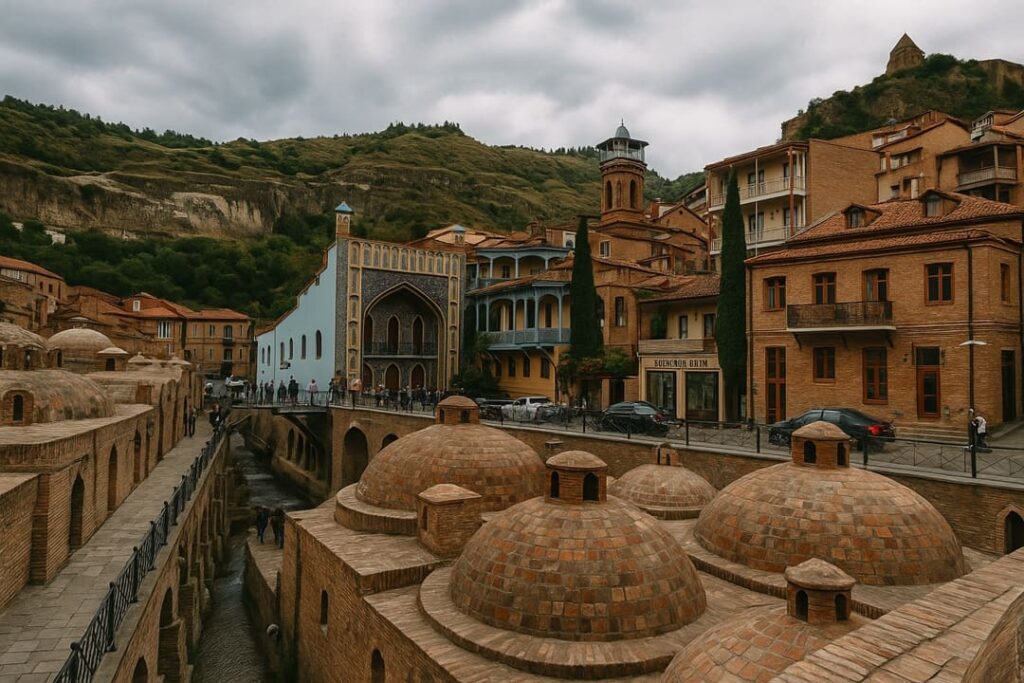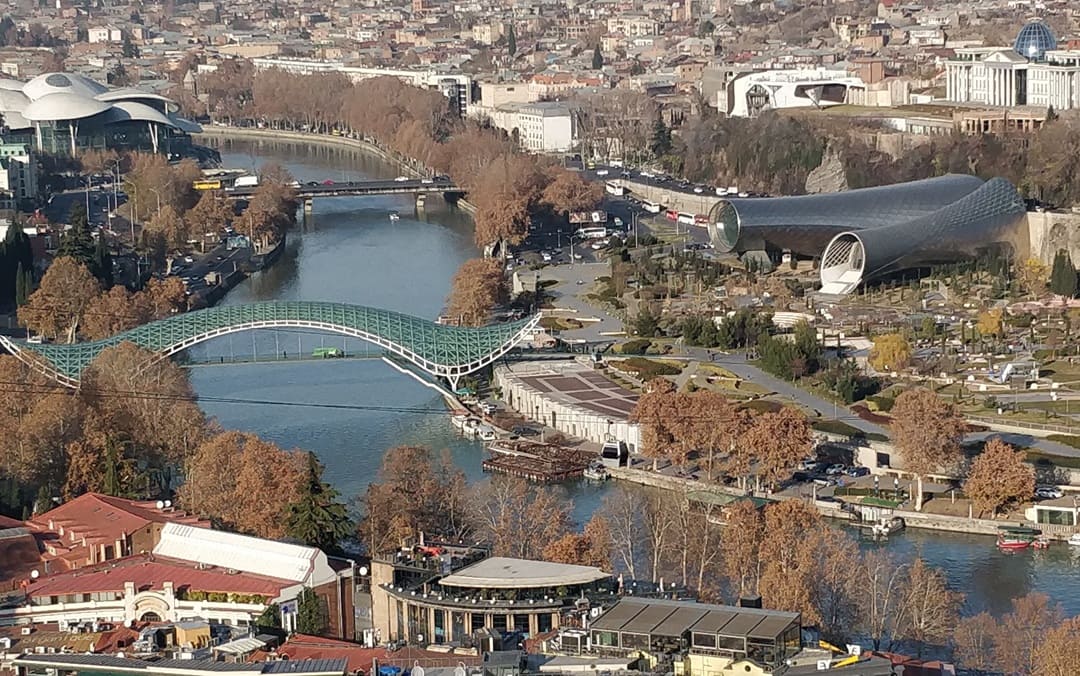Tbilisi’s Allure: Why Travelers Keep Coming Back
There’s something magnetic about Tbilisi, the capital of Georgia—not the U.S. state, but the ancient country tucked between Europe and Asia. You don’t just visit this city. You feel it. From the moment your plane touches down and you ride through its winding hills toward the golden lights of Old Town, there’s this unshakable sense that you’ve arrived somewhere that matters. Somewhere old, alive, and unfiltered.
At first glance, Tbilisi can seem like a contradiction. Cobbled alleys lead to brutalist high-rises. Wooden balconies lean out over crumbling stone facades, while sleek wine bars buzz with indie music and conversations in four different languages. It’s Soviet, Persian, European, and entirely Georgian—all at once. But somehow, it works. And more than that, it pulls you in.
If you’ve grown tired of cities that feel curated or overly polished, Tbilisi is a breath of fresh air. This isn’t a postcard pretending to be a place—it’s real. The hills are steep, the sidewalks are uneven, and not everything comes with a QR code. But what you do find is warmth. Unmistakable, generous, wide-open Georgian hospitality.
Whether you’re sipping a glass of amber wine on a rooftop overlooking the sulfur baths or getting lost in the stairwells of a 19th-century building that now houses an art gallery, every moment here feels personal. And that’s what makes it different from other capitals in Europe. Tbilisi doesn’t try to impress. It just is, and that’s what makes it unforgettable.
And the best part? It’s still under the radar for most American travelers. You won’t find tourist buses clogging Liberty Square or lines outside every restaurant. But you will find locals who are genuinely happy to see you, a hotel staff who will invite you to their family dinner, and strangers who will pour you wine just because you’re in their city.
So, if you’re looking for a place where comfort and culture intersect, where every street feels like a story waiting to be told, and where luxury comes with a side of soul—then maybe it’s time you booked a flight. Tbilisi is ready. Are you?
Where Comfort Meets Culture — Hotel Life in Tbilisi
Staying in Tbilisi isn’t just about having a bed to crash in. It’s about waking up to the sound of church bells echoing from across the river. It’s about sipping your first coffee of the day in a sun-drenched courtyard surrounded by jasmine and ivy. It’s about stepping outside your hotel and realizing that the city doesn’t just invite you in—it folds you into its rhythm.
The hotel scene in Tbilisi is refreshingly personal. Forget generic hallways and copy-paste interiors—many of the best stays in the city are housed in buildings with real history, repurposed and reborn. Take Stamba Hotel, for example. Once a Soviet publishing house, it’s now one of the most talked-about places to stay in the region. You walk through its massive concrete halls and catch the scent of roasted coffee from the café that shares the lobby with a concept store and a vertical jungle of plants hanging five stories high. It’s artsy without being pretentious, and luxurious without being cold.

Just across the street, Rooms Hotel is another icon—a boutique hotel that feels more like a creative sanctuary than a place to sleep. With floor-to-ceiling windows, cozy mid-century design, and a garden restaurant that serves some of the best breakfasts in the city, it’s no wonder digital nomads and design lovers can’t stop coming back.
But Tbilisi isn’t just for the hip or the high-end. There’s room for every kind of traveler here. Down near Rustaveli Avenue, you’ll find Radisson Blu Iveria, a modern tower with an infinity pool overlooking the Mtkvari River and a casino that never sleeps. A few streets away, the Biltmore Hotel offers five-star luxury in a gleaming skyscraper built into the shell of a historic neoclassical theater—yes, really. The views are dizzying, but so is the fact that you’re in a city where 1930s architecture and modern glass can merge into something this cool.
What truly sets Tbilisi’s hotels apart, though, isn’t the design or even the amenities—it’s the human touch. In the smaller guesthouses of Sololaki or Avlabari, owners still greet you with a homemade chacha or a slice of fresh khachapuri. Staff go out of their way to help you book day trips, explain the subway system, or write down the name of a dish you fell in love with at dinner. It feels like staying with distant relatives you never knew you had—people who want you to enjoy the city as much as they do.
And then there are the views. Whether you’re staying in a converted 19th-century home or a shiny new suite, you’re almost guaranteed a room that looks out over something memorable: the tiled domes of the Abanotubani bathhouses, the green stretch of Mtatsminda, or the golden statue of Kartlis Deda standing watch over the rooftops.
So no matter your budget or travel style, you won’t just find a place to stay in Tbilisi—you’ll find a place that fits your story. And chances are, by the time you leave, your hotel won’t feel like a hotel anymore. It’ll feel like home.
Staying in Old Tbilisi — An Experience in Itself
There’s something about Old Tbilisi that refuses to be just a backdrop. It doesn’t stay politely in the distance while you go about your day—it follows you. In the echo of narrow courtyards, in the lazy swing of wooden balconies, in the call of a neighbor greeting someone three floors up. Staying here means you’re not just visiting the city—you’re living in it.
If you book a room in this part of town, you’re signing up for a front-row seat to the old soul of Tbilisi. The buildings are worn but proud, with peeling pastel facades and carved wooden staircases that have creaked under a century of footsteps. There’s laundry flapping in the wind, a cat napping on a windowsill, a grandmother selling herbs in recycled jars. It’s not curated, but it’s beautiful. And when you stay here, you become part of the story.
Waking up in Old Tbilisi is an experience in itself. The morning starts with sunlight slipping between crooked rooftops and the smell of fresh bread from a tone bakery tucked into a basement nearby. As you sip coffee on your tiny balcony—or on the hotel’s rooftop terrace if you’ve splurged a little—you catch a glimpse of the Narikala Fortress climbing the hill above the city, and the Mother of Georgia statue watching from the ridge like a silent promise: “You’re safe here.”

Some of the best stays in the city are tucked away behind heavy wooden doors in this part of town. Think small guesthouses with mosaic-tiled floors and hand-woven rugs, or boutique hotels that blend traditional Georgian textures with crisp, modern comfort. Here, your room may not have touch-screen lighting or 24/7 room service—but it will have soul. And silence, when the crowds disappear and the cobblestones glow under warm evening lights.
And when you step outside, you’re not jumping into a cab or waiting for an Uber. You’re wandering. Maybe you’ll stumble into the smell of lamb mtsvadi grilling just off Erekle II Street. Maybe you’ll walk down to the sulfur baths of Abanotubani, where steam curls into the sky like incense from ancient rituals. Maybe you’ll get pulled into a conversation with a stranger who insists you have to try wine from their cousin’s village.
Staying in Old Tbilisi slows you down in the best way. It softens your pace. It makes you pay attention. You stop reaching for your phone and start noticing things—the sound of footsteps in the courtyard, the geometry of tangled laundry lines, the way the light hits the bricks at golden hour.
And when it’s time to leave? You won’t be in a hurry.
Tourist Services That Actually Understand Travelers
One of the most surprising things about traveling through Tbilisi is how many of the tourist services don’t feel like services at all. They feel like someone you just met—someone who happened to have a car, a connection, or a cousin with a guesthouse in the mountains—and who genuinely wants you to have a good time. There’s an ease, a casual warmth to how things work here. But don’t mistake that for disorganization. Behind the relaxed vibe is a city that knows exactly what travelers need—and how to deliver.
Let’s start with the guides. Forget the rigid script-followers trailing umbrellas through crowds. In Tbilisi, if you book a walking tour with the right person, you’ll end up in places no tourist map dares to go. Maybe in a hidden wine cellar behind a bookstore. Maybe in the workshop of a master enamel artist who hasn’t raised his prices since 2009. The good guides here aren’t just bilingual—they’re bridge-builders. They tell you about the history of King Vakhtang Gorgasali and the ancient sulfur springs, sure. But they also tell you where they had their first kiss. Where they go for hangover khashi. Where the good wine flows from plastic jugs in old men’s basements.
If you’re more into self-guided exploration, Tbilisi has caught up fast. One of the smartest moves you can make is to rent a car in Tbilisi through Getmancar—a local car sharing and rental service that’s exploded in popularity over the past few years. Their app is in English, the pickup process is contactless, and you can drive around town by the minute or head out for a weekend in the mountains with a full rental. It’s way more flexible than old-school rental counters, and you don’t need to haggle in a basement office with a fax machine. For spontaneous day trips to Kazbegi, Signagi, or even just to explore the wine region of Kakheti, this is a game-changer.

Need help booking a getaway into the mountains or organizing a wine tour that’s not full of Instagram clichés? There are small travel offices in Vera and Sololaki that specialize in custom day trips. The ones worth your time won’t hand you a laminated pamphlet—they’ll pull out their phone and show you a photo of a remote guesthouse with sheep in the yard, or call their uncle in Telavi to check if the qvevri wine is ready for tasting.
Even the classic Georgian experiences feel more genuine here. The Abanotubani sulfur baths, for example, may appear touristy at first glance—but choose a private room, and you’ll find yourself in a steamy, tile-covered haven that feels timeless. And if you’re lucky, the attendant will recommend a masseur who’s been working there for thirty years. It’s more than relaxation—it’s tradition, running hot from the heart of the city.
Hospitality here is less about glossy surfaces and more about connection. That’s why even services meant for tourists don’t feel transactional. You leave a tour with more than pictures—you leave with phone numbers, memories, and invitations you weren’t expecting. And isn’t that what travel’s supposed to be?
From Spa Rituals to Wine Tastings — Hospitality, Georgian Style
You haven’t really felt Georgia until you’ve sat half-naked in a steaming room beneath a centuries-old brick dome while hot sulfur water rushes across your back. The Abanotubani baths in Tbilisi aren’t just an attraction—they’re a ritual. Locals still come here for everything from hangover cures to spiritual resets. The heat is intense, the walls are rough with age, and the experience is—let’s be honest—a little wild if you’re not used to it. But once you settle in, you realize: this is the heartbeat of the city. This is how Georgians take care of themselves and each other.

And when the massage begins—let’s just say you’re going to forget every overpriced “spa experience” you’ve ever had in a hotel back home.
But hospitality in Tbilisi goes far beyond steam and stone. It flows into the wine, too—especially the kind that never sees a label. In Georgia, wine isn’t just served. It’s shared. If you find yourself in a dimly lit basement with clay jars (called qvevri) buried in the ground, and someone pours you a deep orange liquid with a nutty aroma and says “Gaumarjos!”—you’ve struck gold.
Forget fancy vineyards with choreographed tours. The best wine tastings happen in someone’s backyard in the Sololaki neighborhood, or in the upstairs room of a corner restaurant where someone’s uncle makes their own saperavi. You drink slowly, you toast often, and before long, you’re part of a story that was never written down. Georgian wine culture isn’t performative—it’s instinctive. You don’t need to know the words. Just raise your glass and follow the rhythm.
The same goes for dinners. In Tbilisi, meals stretch long into the night, not because the food is slow, but because no one’s in a hurry. You’ll find yourself seated at a table full of strangers who quickly become friends, with dishes like khinkali (those juicy meat dumplings you twist and bite) and badrijani nigvzit (eggplant rolls with walnut paste) appearing one after another, almost magically. There will be wine, there will be laughter, and eventually, someone will stand and make a toast that hits you right in the chest—even if you don’t speak the language.
For travelers looking to learn more, there are culinary workshops where you can knead dough for khachapuri or mix your own adjika spice paste. But the best classes happen not in studios, but in real kitchens. A host auntie in a floral apron, a garden with figs growing along the wall, and a table that somehow keeps filling itself—that’s where you taste the real Georgia.

In Tbilisi, hospitality isn’t something polished and packaged. It’s messy, warm, fragrant, loud, and full of life. It’s a culture that insists on making space for you, feeding you, and making sure you leave with more than souvenirs. You leave with stories, and maybe a slight hangover.
When to Go and How to Make It Count
Tbilisi doesn’t really do “off-season”—it just changes its clothes. In spring, the city smells like blooming acacia and wet stone. In summer, the heat rolls in from the plains, and the rooftops shimmer under the weight of sunlight. Autumn wraps everything in gold and smoke, and by winter, the city feels quieter, more introspective—perfect for long walks, steaming khinkali, and lingering hours in a hot bathhouse.
If you’re planning your first visit, late September through October is a secret sweet spot. The wine harvest is in full swing, the weather is still warm but not punishing, and the crowds are thinner than in summer. You’ll catch locals on balconies drinking wine in the evenings and street musicians filling Rustaveli Avenue with old folk songs.
Summers, especially July and August, can get hot and dry, but that doesn’t slow down the city. Most hotels are well air-conditioned, and there’s always an escape waiting—up to the mountains, out to the vineyards, or just into a shadowy wine cellar with a fan whirring in the corner.
Winter in Tbilisi is often overlooked, which is a shame. Sure, it’s colder, but the snow on the rooftops and the steam rising from the sulfur baths create a kind of poetry. And it’s when you’ll find the best hotel deals and the warmest kind of hospitality—because Georgians always turn the heat up when the cold settles in.

Whatever time of year you visit, know this: Tbilisi doesn’t move fast. Things start late. People linger. Service isn’t rushed, and that’s the point. Slow down. Order the second glass. Let the owner recommend the dish you’ve never heard of. Trust that the conversation will find its way.
Also, don’t over-plan. Some of the best moments here happen between the bullet points on your itinerary. A stranger inviting you into their courtyard for coffee. A jazz band setting up under a bridge at midnight. A sudden urge to take the cable car just to watch the city exhale from above.
Just show up, and let the city do the rest.
Georgian Warmth Beyond the Hotel Lobby
What you remember about Tbilisi long after your plane takes off won’t be the thread count on your hotel sheets or how many stars the lobby had. It’ll be the waiter who brought you a second glass of wine “on the house, just because.” The hotel receptionist who walked you to the corner because Google Maps didn’t quite get the alley right. The family that insisted you sit, eat, and be part of their celebration—even though you only stopped to ask for directions.
In Tbilisi, hospitality isn’t a service. It’s a reflex.
You don’t have to earn it, and you certainly don’t have to book it online. It just happens. It happens when someone gives you a better room than you paid for. When the woman at the spa smiles and says, “You look tired. Sit, I make tea.” When a taxi driver pulls over just so you can take a photo of the view—even though the meter’s running.
This city makes room for you. It doesn’t care if you’ve done your research or speak a word of Georgian. It just wants you to feel something—something real. And you will. In the laughter echoing from the balconies. In the scent of grilled eggplant wafting through the narrow streets. In the hands that pour your wine with more generosity than most cities reserve for their friends.
So if you’re looking for a destination that feels like more than a destination—if you want to be somewhere that remembers your name, your smile, your story—Tbilisi is waiting. Not to impress you. Not to perform. But to welcome you, exactly as you are.
All you have to do is go.
